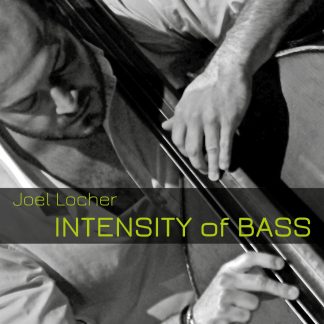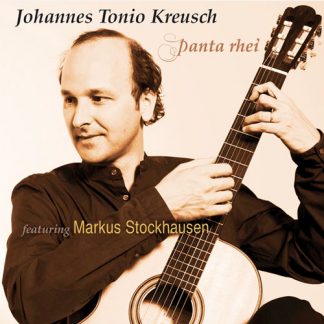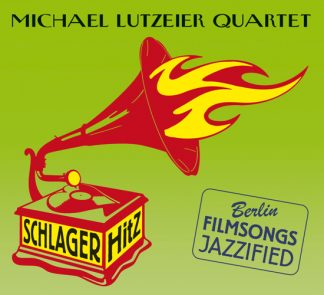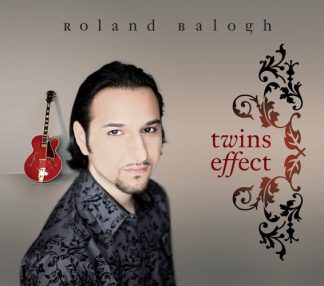Description
Wawau Adler guitar
Hono Winterstein rhythm guitar
Joel Locher bass
Alexandre Cavaliere violin
Up until the 1970s, every major new jazz style came from its mother country, the United States – except for one that was invented by European musicians as the European variety of jazz: Manouche Jazz, also known as Gypsy Swing or Sinti Swing, as Django Reinhardt called it, invented and cultivated with his Hot Club de France in the 1930s. The guitar, which has long played no role in American jazz, was and is the focus here. And as the genre name suggests, it was and still is musicians from the Sinti and Roma ethnic groups who maintained and continued Reinhardt’s virtuoso, rousing and timeless style.
One of Reinhardt’s outstanding descendants has long been Josef “Wawau” Adler, born in Karlsruhe in 1967. At the age of nine he discovered the guitar for himself, at twelve he intensified his efforts under the impression of Biréli Lagrène and at the age of 13 he gave his first concerts. As Twen, he also turned to bebop and fusion jazz, making him one of the few Sinti guitarists who mastered modern jazz just as virtuously as gipsy swing. But after a break at the beginning of the new millennium, Adler returned to the roots of his music. Today, now that Django Reinhardt would have celebrated his 110th birthday on January 23, 2020, Adler is once again putting a musical monument to him on this ideal occasion, which is also called “Happy Birthday Django 110”.
“Since Django Reinhardt’s ‘Quintette du Hot Club de France’ has shaped me and countless other musicians all over the world, it was only natural to make the album sound exactly like this,” says Wawau Adler. For this reason, the original sound of the old recordings was adhered to during production: Adler plays an original Selmer guitar No. 828, which, like Django’s guitar No. 503, dates from the 1940s. And it was recorded with only two globally unique and very valuable microphones, which are modeled on the originals used at that time. As back in the days, no other recording technology was used. On the other hand, respect for the great role model also means taking his idea of jazz as an individual expression seriously: “Of course, the solos should not simply be copied,” emphasizes Adler, “Django was therefore my constant companion in the spirit during the preparations and the recordings in the studio. Again and again I asked myself: How would he have done it? What notes, what licks would he have played? What would have sounded loud, gentle, dynamic, loving or even melancholic or even sad? A challenge, because this happens exactly at the time of its creation in improvised music.”
A challenge that Adler mastered in an overwhelming manner. Technically anyway, from the sweepings to the typical tremolo pickings and glissandi, from the loosely sprinkled races over the fretboard to the octave handles. But also when interpreting the standards framed by four Reinhardt compositions of very different origins, from Walter Donaldson’s “My Blue Heaven” and George Gershwin’s “The Man I Love”, both from 1924, to Morgan Lewis’s “How High The Moon” from 1940 and Michel Legrand’s” I Will Wait For You “from 1964. Whether slow romantic ballads like” Time On My Hands “, whether mid-tempo blues like” Melodie Au Crepuscule “or high-speed pieces like the Django opener” Twelfth Year “, Adler not only makes it swing flawlessly, he also plays around every melody as imaginatively and expressively as his great role model.
Of course, his companions also come into play, because an authentic “Djangologie” also includes a “Hot Club”. Just as Reinhardt couldn’t do without his brother Joseph “Nin-Nin” on the rhythm guitar, a Stephane Grappelli on the violin or a Louis Vola on the bass, Wawau Adler also has congenial colleagues at his side. On the one hand there is his longtime friend and companion Hono Winterstein, one of the best rhythm guitarists worldwide. The 57-year-old played in the late 1970s with the Gino Reinhardt Trio, later with Dorado, Samson and Tchaolo Schmitt, and since 2001 often with Biréli Lagrène, with whom he also toured in the United States and Japan. In Addition, Chanson star Patricia Kaas was already using his services. For this project with Wawau Adler, he not only contributed his incorruptibly precise rhythm work, but also the wonderful ballad “Lune De Miel”, which he composed.
The Swiss-German bass player Joel Locher provides the bass primer. The 37-year-old is familiar with all facets of his instrument. As the son of an opera singer and a classical double bass player, he received music lessons from the age of five, learned the piano, cello and trumpet before discovering the bass for himself. After completing a classical education with Ulrich Lau at the Stuttgart University of Music, he was solo double bass player in the Stuttgart Youth Chamber Orchestra and intern with the Stuttgart Philharmonic. At the same time, he was increasingly getting into jazz. The Memberships in the trio of young modern jazz pianist Olivia Trummer and with Funka Nova with Pee Wee Ellis and Peter Fessler, speak for his versatility and virtuosity. But his greatest love belongs to hot jazz, which he cultivates with veritable Django-Reinhardt heirs like Gismo Graf, Sandro Roy or Frank Kuruc. His first gypsy swing station was, of course, the ensemble of Wawau Adler in the early 2000s, to which he remains loyal to this day.
New in Adler’s band, and a stroke of luck, however, is the only 34-year-old Belgian violinist Alexandre Cavaliere, with whom Hono Winterstein made contact. He also comes from a family of musicians and had formative experiences as a child in his father’s orchestra. Also trained on piano and percussion, his passion belonged to the violin – and the gypsy swing. At age twelve he was already noticed by Didier Lockwood, the unforgettable star violinist of jazz, and was able to learn from him. Cavaliere soon became an attraction at the big festivals and played with greats like Toots Thielemans, Richard Galliano or Richard Bona, but above all with some of the most important Reinhardt heirs like Dorado Schmitt, Stochelo Rosenberg or Biréli Lagrène. Now, with his perfect interpretation of the Grappelli sounds and phenomenal solos (as on “The Best Things On Life Are Free” or “Time On My Hands”, and his particularly impressive improvisations on “My Blue Heaven”), he does his part for Adler’s Birthday present for the great Django Reinhard. A present that the master would surely have been enthusiastic about. And that in its timeless beauty also convinces every listener who likes hot jazz.







Reviews
There are no reviews yet.